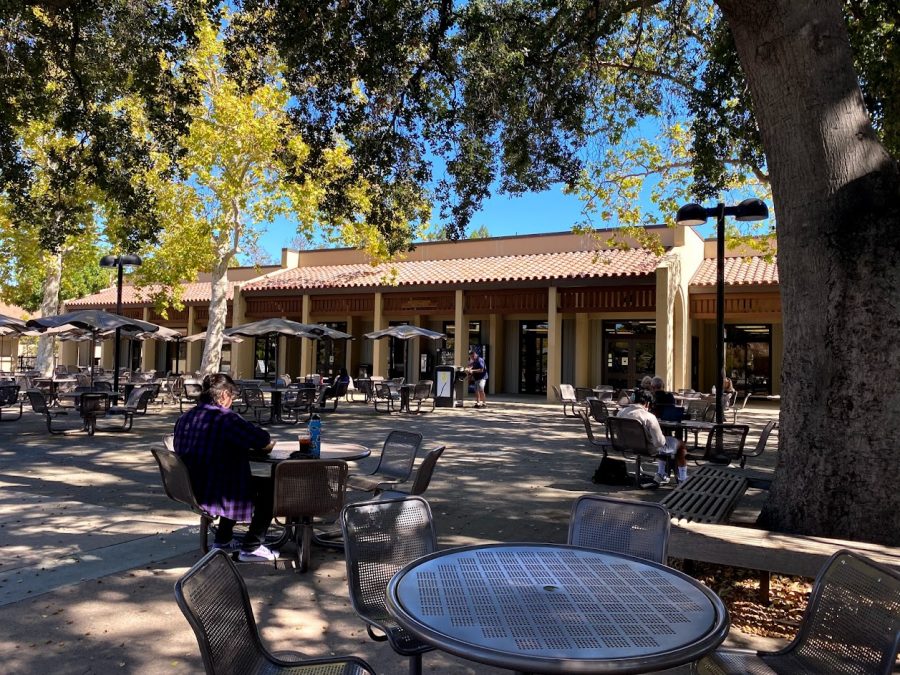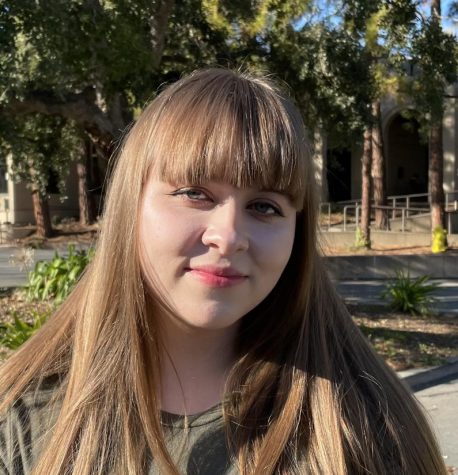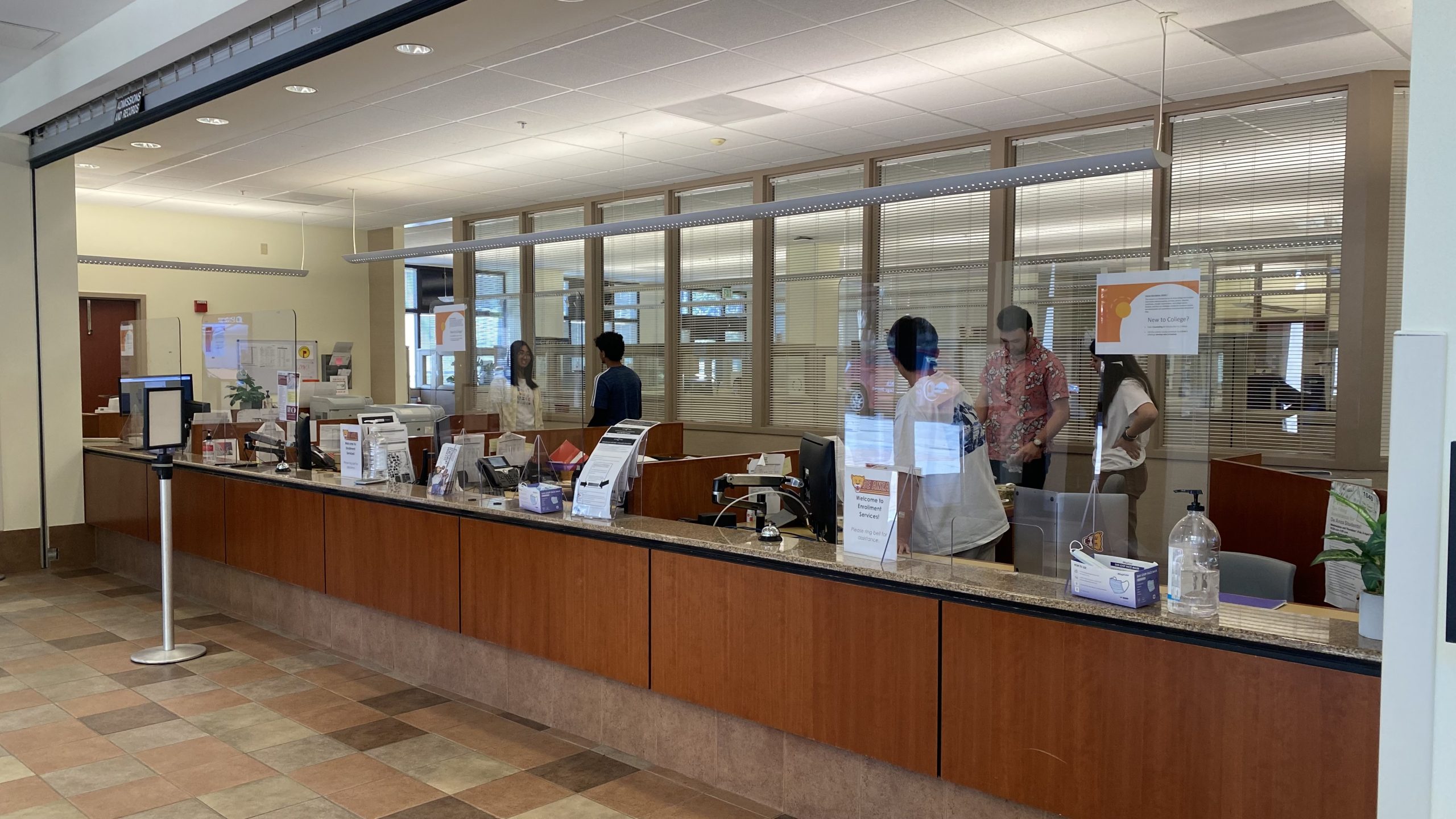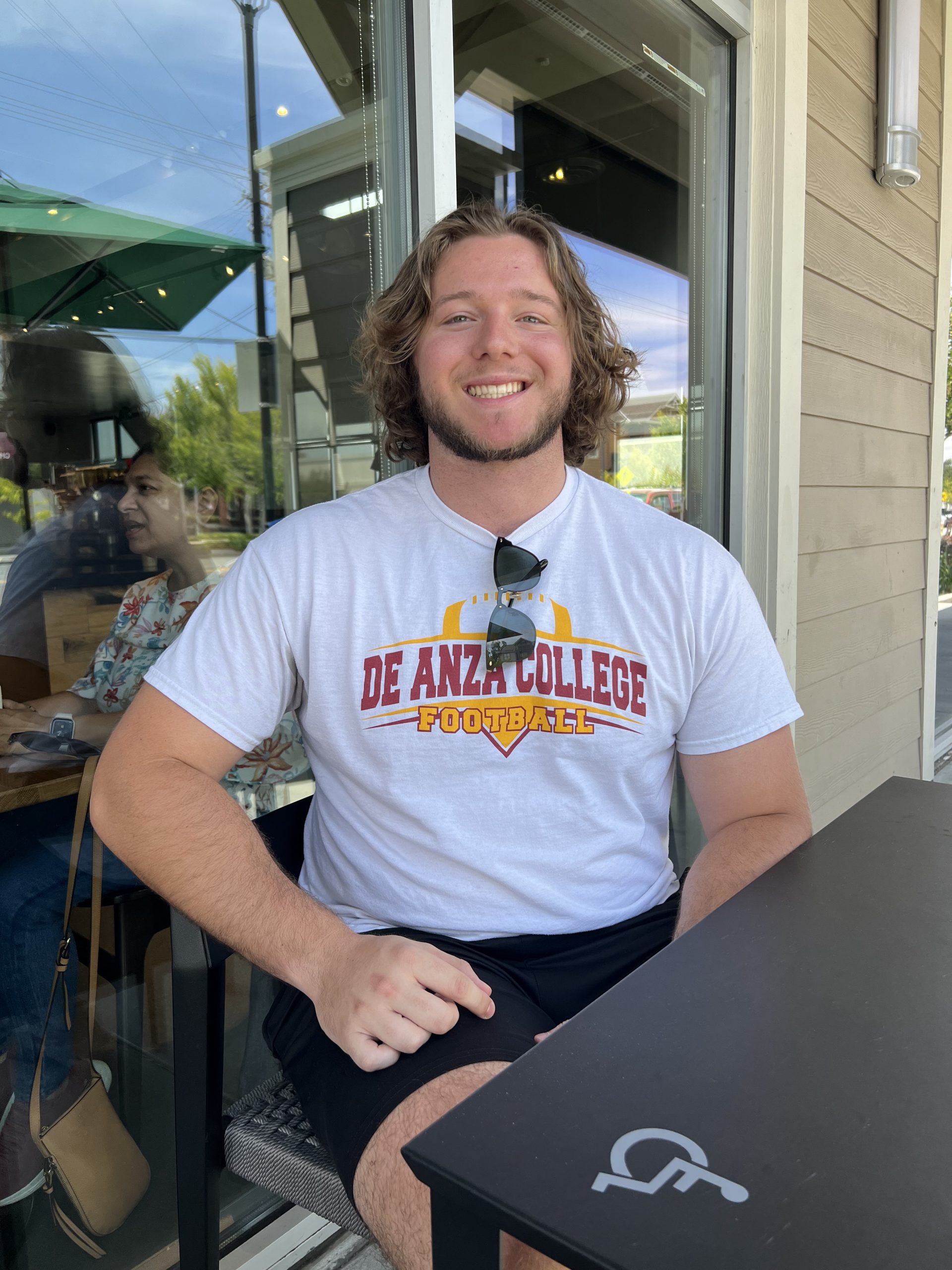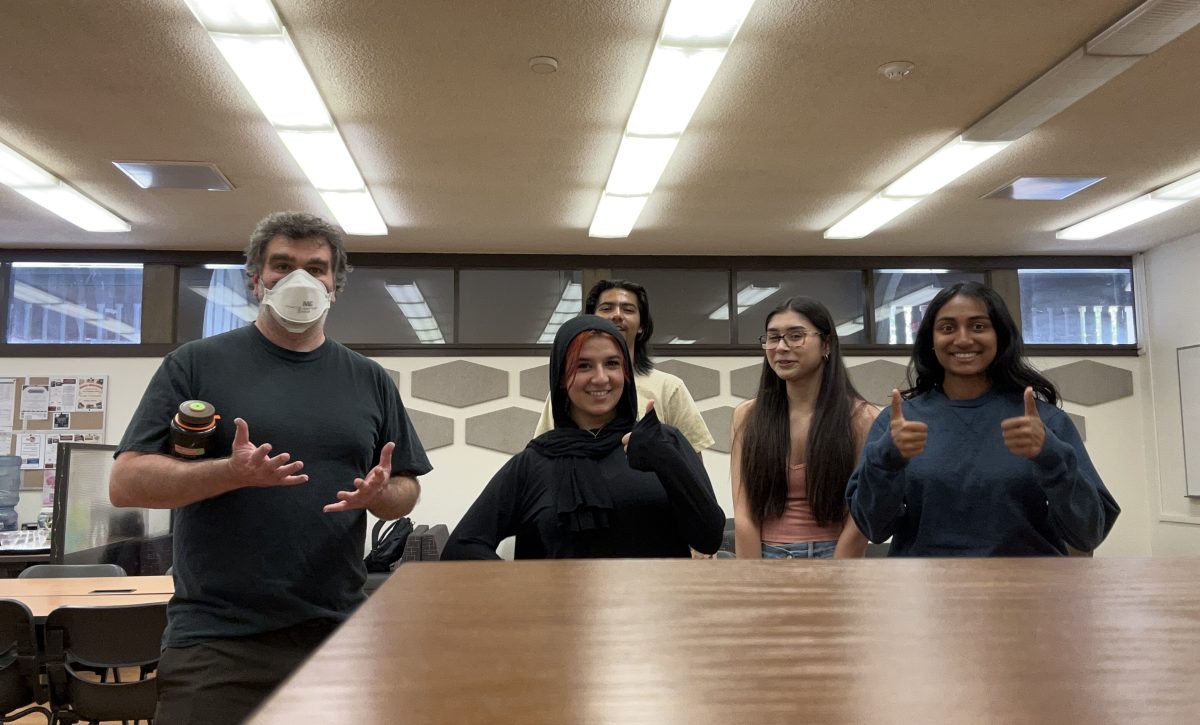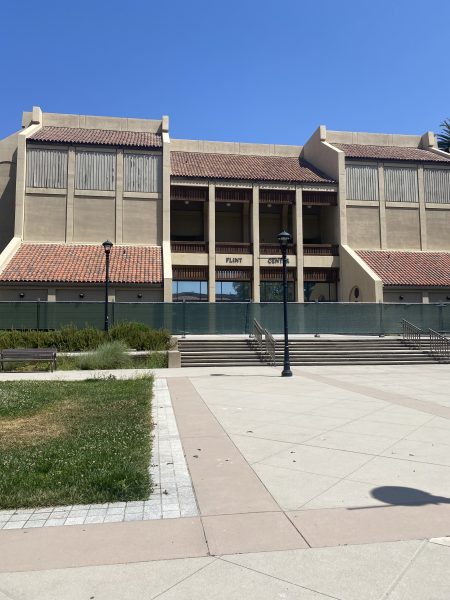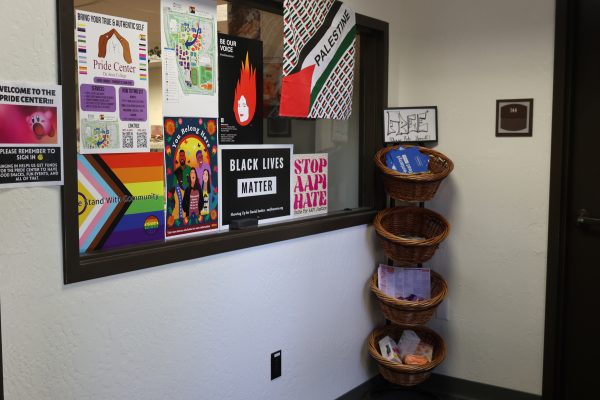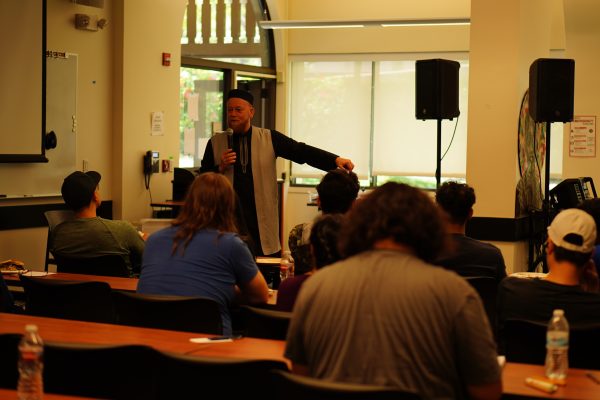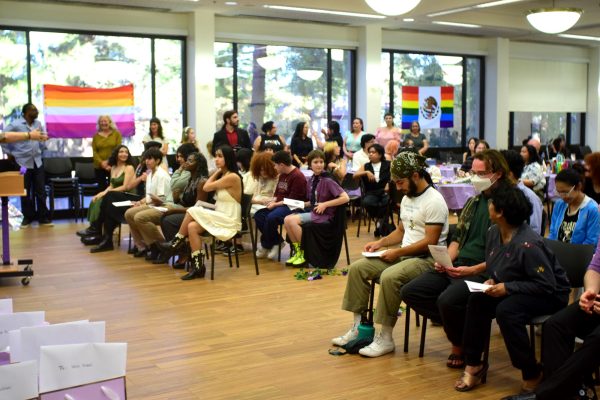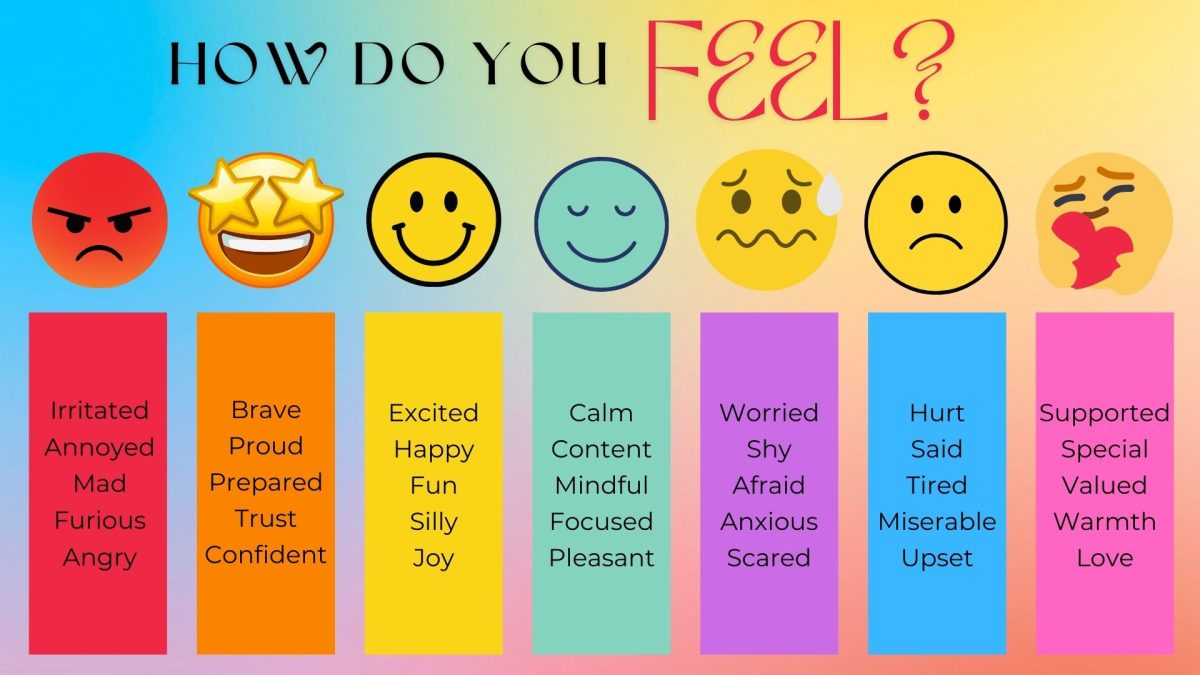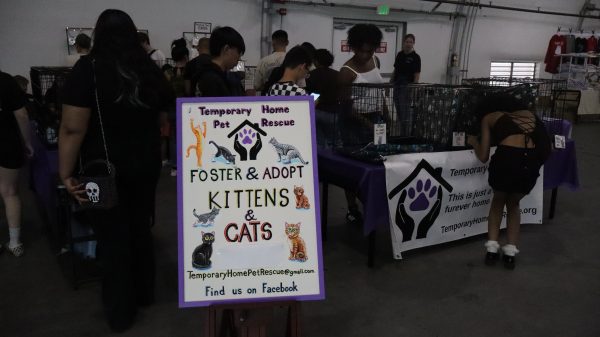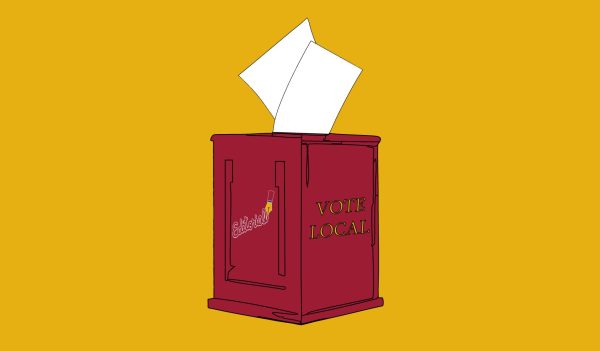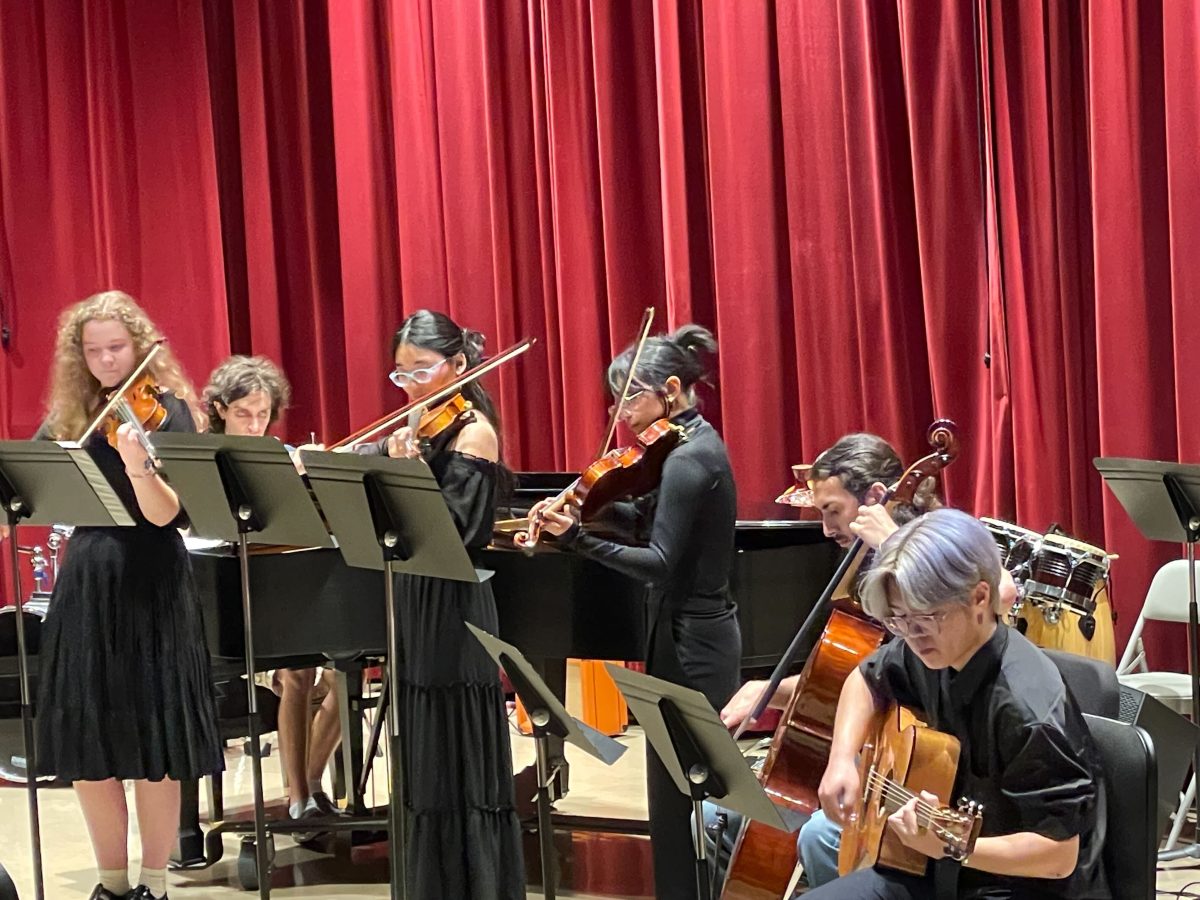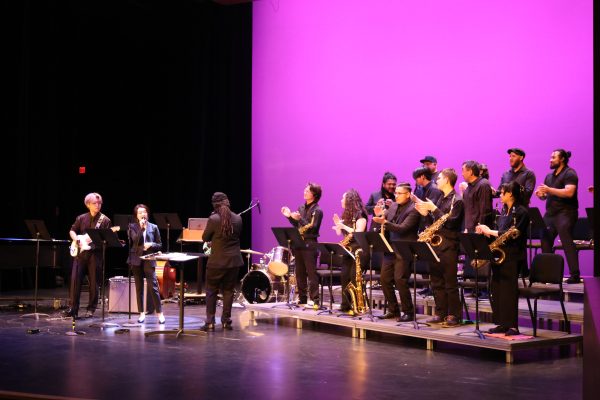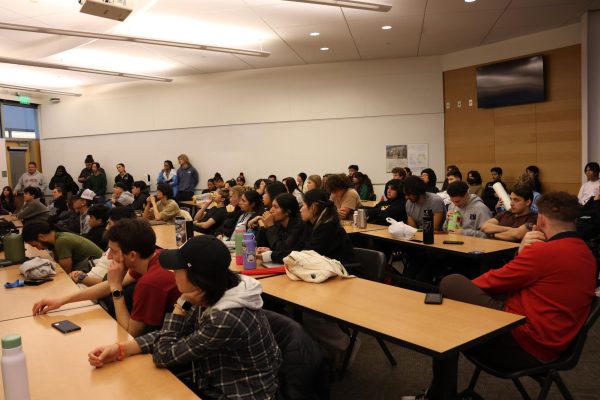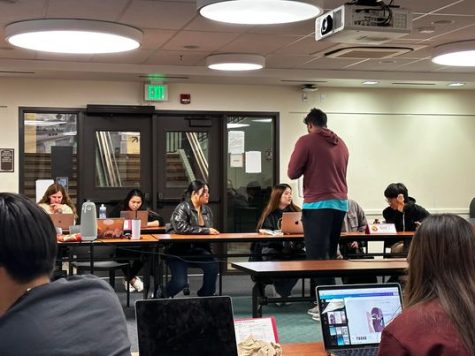De Anza grapples with vaccine mandates and return to in-person learning
Students and community members gather outside the Marjorie L. Hinson Campus Center to study, eat, and unwind.
October 5, 2021
It’s been one year and seven months since students and faculty have seen the bustling and lively campus that many have fond memories of at De Anza College. Today, the vacant parking lots, empty rooms and silence around campus provide a jarring contrast.
In order to step foot on campus for the fall quarter 2021, there are a number of policies students and staff must comply with, including a mandatory certification of one’s COVID vaccinations, as well as a brief health check-in that should be completed prior to arriving on campus, asking for your temperature, potential exposure to COVID and the like.
Tyra Walley, 19, a business major, registered for an in-person class this quarter, but hadn’t received any email warnings. She was initially confused when pressed for all of these requirements, but luckily her professor helped clarify the process.
“When I went onto the De Anza website, I saw a ‘OptimumHQ’ button and just signed up for it without really understanding what it was,” Walley said. “It was only when I came to class that my teachers explained it in-depth and I was able to figure it out.”
Although there is some controversy over how students can be dropped from in-person classes they registered for if proper vaccination documents aren’t received by October 1, students like Walley believe that the risk of transmitting COVID is just too high to allow the unvaccinated on campus.
“I do think it’s fair because obviously people who are not vaccinated are way more likely to get it, and if everybody’s vaccinated and we’re all wearing masks, it’s a massive decrease in exposure,” Walley said. “You know the rules. If you get dropped, that’s on you.”
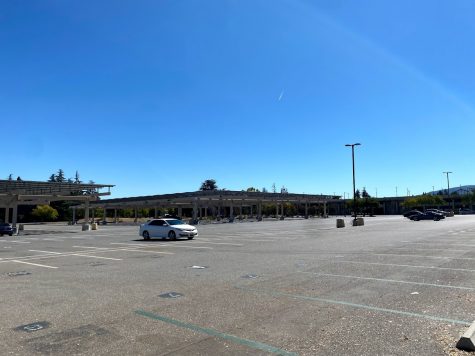
But other students like Samantha Espinoza, 19, a biology major, who also works security at a local Kaiser facility, disagree. She said that the mandate would serve as a barrier to education, and that it would be unfair to impose more requirements onto students who may already be struggling.
“Since people who have already been vaccinated can still get COVID, I feel that it shouldn’t be required for people to get vaccinated,” Espinoza said. “I understand that the majority should be vaccinated to protect other people, but at the same time I had the hardest time learning at home, so I feel like this really limits people.”
Students are not the only ones returning to campus, as faculty and staff are finally returning to their classrooms and offices as well. They too must adjust to new policies and adjust on the fly, like Julie Wilson, a professor in the English department, who opened a dialogue with her in-person students on the first day of class.
“We talked about what we felt comfortable doing as a class. One difference is that I’ve given students a slightly longer break so they can eat then and not during class. Students told me they felt comfortable taking brief sips of their drinks, but otherwise preferred keeping masks on the rest of the time,” Wilson said. “Thus far, there have been no issues with this, although I periodically have to remind a student to be sure their nose is also covered by their mask.”
Francesca Caparas, a professor in the English department, said that they are excited to be back on campus and are happy to be seeing students in-person again despite all of the distancing and protocols. They said they forgot how draining teaching in-person was.
“Even though I’m so used to the first day of school, I’ve never had a first day like this, so I’m just trying to recalibrate my expectations,” Caparas said. “I was exhausted after only the first hour, and I teach a two hours and 15 minutes class. I forgot how much energy it takes to engage a group of 30 students.”
Wilson was also keen to note the significant impact the pandemic has had and said that she does not feel quite ready to proceed as if nothing has happened.
“One interesting thing I noticed was that I was hesitant to change my office calendar which is still set to March 2020,” Wilson said. “There’s something in me that isn’t ready to just move on or forget the upheaval that we’ve experienced. I think all of us still have some processing to do.”



